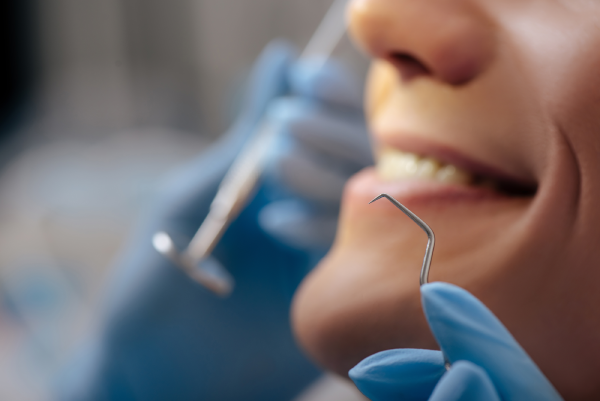 According to the American Dental Association, 100 million Americans do not see a dentist even once a year. The reason is often fear that a visit will either reveal some bad news or that any treatment will be painful. These are serious misconceptions because modern dentistry has a wide variety of ways to make any necessary therapies virtually pain-free and waiting to address these health issues will only make them more difficult and expensive to resolve.
According to the American Dental Association, 100 million Americans do not see a dentist even once a year. The reason is often fear that a visit will either reveal some bad news or that any treatment will be painful. These are serious misconceptions because modern dentistry has a wide variety of ways to make any necessary therapies virtually pain-free and waiting to address these health issues will only make them more difficult and expensive to resolve.
There are many good reasons why everyone should see their dentist at least twice a year. One is, of course, to check for cavities and periodontal infection (which can lead to losing teeth if not stopped). Even those who are diligent about brushing and flossing also should have a dental hygienist provide a professional cleaning during these visits, since this helps ensure that any plaque and tartar (the substances that cause periodontal disease) are thoroughly scrubbed off with special tools.
For those whose habits have been less successful, antibacterial solutions may be applied and a more frequent cleaning schedule set up to keep a close eye on the infection. The dentist may even order a digital x-ray to see if it has reached the jawbone, since loss of bone has no symptoms.
Keeping bad oral bacteria under control has been shown to prevent diabetes, cancer, and cardiovascular disease. Everyone should look forward to a regular visit to the dentist as a chance to prevent dental problems from becoming more serious.
A regular exam will even include a close inspection by the dentist for signs of oral or throat cancer. More than 50,000 people a year are diagnosed with these, which are easily treated if detected early.
If there is a tendency to high blood sugar, your dentist can detect this leading to full-blown diabetes with a breath test and refer a patient to a doctor for appropriate preventive measures or treatment.
Other conditions that can be checked during a regular visit include dry mouth (lack of saliva can lead to cavities), fillings that need to be replaced, symptoms that the patient is grinding teeth during sleep (which will wear them down), and TMJ disorder (which makes opening and closing the mouth painful or difficult).
A regular visit is also a good time to review ways to improve your bite and cosmetic goals, such as having teeth professionally whitened, covering cracked or stained teeth or close gaps between them with veneers, or straightening crooked teeth.
Even those without all their natural teeth will also want to see their dentist regularly to make sure that if they have dentures, they are still fitting properly (since aging normally causes loss of jawbone and this requires periodic adjustment). If you have dental implants, while they usually last 10 or 20 years, this assumes good oral healthcare habits to ensure no infection in the gums or underlying bone.
